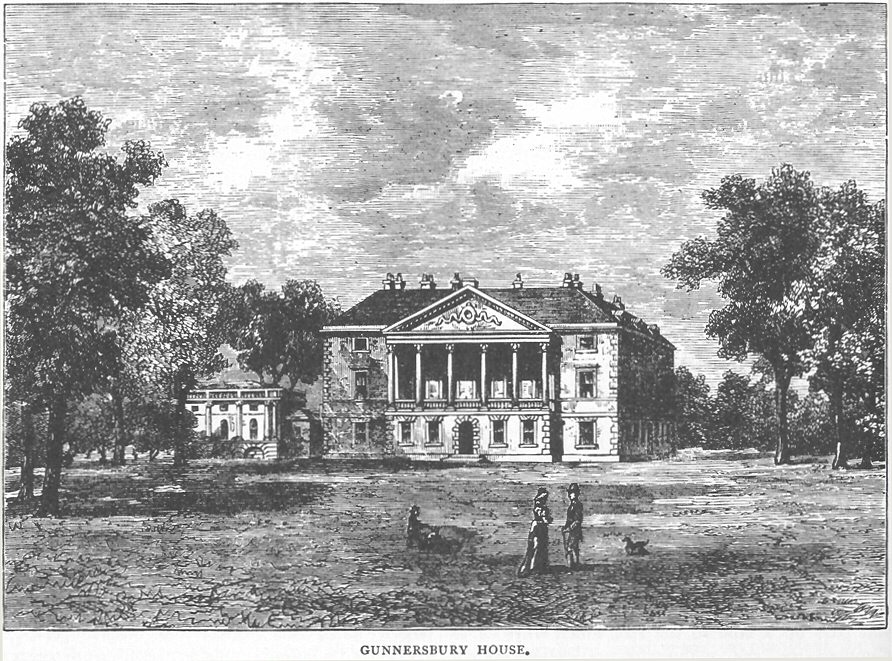Henry Furnese (MP, Died 1756) on:
[Wikipedia]
[Google]
[Amazon]
Henry Furnese (after 1688 – 30 August 1756), of Gunnersbury House, Middlesex, was a British merchant and politician who sat in the  Furnese was returned unopposed as Member of Parliament for
Furnese was returned unopposed as Member of Parliament for
House of Commons
The House of Commons is the name for the elected lower house of the Bicameralism, bicameral parliaments of the United Kingdom and Canada. In both of these countries, the Commons holds much more legislative power than the nominally upper house of ...
between 1720 and 1756.
Furnese was the only son of George Furnese, an East India Company
The East India Company (EIC) was an English, and later British, joint-stock company that was founded in 1600 and dissolved in 1874. It was formed to Indian Ocean trade, trade in the Indian Ocean region, initially with the East Indies (South A ...
factor. He was apprenticed to Moses Berenger, a London merchant, and became a member of the Lisbon factory. Some time after September 1709, he succeeded to the estates of his father who died insane.
 Furnese was returned unopposed as Member of Parliament for
Furnese was returned unopposed as Member of Parliament for Dover
Dover ( ) is a town and major ferry port in Kent, southeast England. It faces France across the Strait of Dover, the narrowest part of the English Channel at from Cap Gris Nez in France. It lies southeast of Canterbury and east of Maidstone. ...
with government support in a by-election on 20 December. In 1722, he bought Lathom Hall, near Wigan and declared himself a candidate for Wigan at the 1722 general election, but gave up before the poll. Instead he was returned unopposed again for Dover. In 1723 and 1729 he obtained contracts for remitting money to the garrisons in Gibraltar and Minorca. At the 1727 general election there was a contest at Dover and he was re-elected as MP. However at the 1734 general election he was defeated in the poll. He was returned unopposed at a by-election on 18 May 1738 as MP for Morpeth which his friend Lord Morpeth had vacated on succeeding to a peerage. In 1739 he bought Gunnersbury Park
Gunnersbury Park is a park between Acton, Brentford, Chiswick and Ealing, West London, England. Purchased for the nation from the Rothschild family, it was opened to the public by Neville Chamberlain, then Minister of Health, on 21 May 1926. ...
in Hounslow, London from Lord Hobart. He became an associate of William Pulteney, and voted with the Opposition against the Spanish convention in 1739 and for the place bill in 1740. In 1741
Events
January–March
* January 13
** Lanesborough, Massachusetts is created as a township.
** Conventicle Act of 1741 is introduced in Denmark-Norway.
*February 13 – Sir Robert Walpole, the Prime Minister of Great Britain ...
he was returned on the Furnese interest for New Romney
New Romney is a market town in Kent, England, on the edge of Romney Marsh, an area of flat, rich agricultural land reclaimed from the sea after the harbour began to silt up. New Romney, one of the original Cinque Ports, was once a sea port, w ...
, which he represented for the rest of his life.
When Walpole fell in 1742, Furnese was elected a member of the secret committee and was one of Pulteney's followers who went over to the Administration and obtained offices. Furnese was appointed Secretary to the Treasury
In the United Kingdom, there are several Secretaries to the Treasury, who are Treasury ministers nominally acting as secretaries to HM Treasury. The origins of the office are unclear, although it probably originated during Lord Burghley's tenure ...
in July 1742. His appointment was referenced in many satires attacking Pulteney and he resigned from the secret committee and post in December 1742. He remained in opposition, voting against the Government in all recorded divisions and was returned again for New Romney at the 1747
Events
January–March
* January 31 – The first venereal diseases clinic opens at London Lock Hospital.
* February 11 – King George's War: A combined French and Indian force, commanded by Captain Nicolas Antoine II ...
and 1754 general elections. He was appointed as Lord of the Treasury
In the United Kingdom there are at least six Lords (or Ladies) Commissioners of His Majesty's Treasury, serving as a commission for the ancient office of Treasurer of the Exchequer. The board consists of the First Lord of the Treasury, the Second L ...
from 1755 until his death.
Furnese died unmarried on 30 August 1756. Gunnersbury house and estate were purchased from his sister Elizabeth Pearce in 1760 for Princess Amelia, the daughter of King George II.
References
17th-century births Year of birth uncertain 1756 deaths Members of the Parliament of Great Britain for Dover British MPs 1715–1722 British MPs 1722–1727 British MPs 1727–1734 British MPs 1734–1741 {{England-GreatBritain-MP-stub